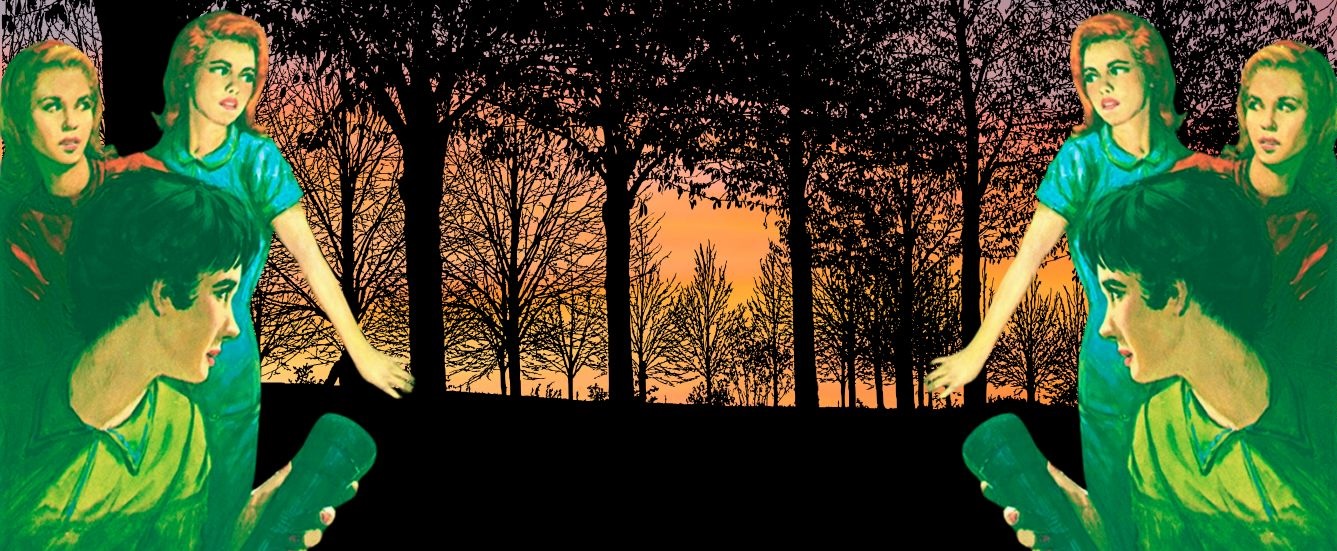Fresh editions of two novels by E. M. Forster – A Room with a View and Maurice – might not sound like news. But Faber’s new Forsters, published last month (at £16.99 each), are a sign of the times at least. Both are smart-ish hardbacks. Both are blandly illustrated by Luke Edward Hall. And since both are presented as “young adult illustrated editions”, both come with that most contentious of additions to new editions of old books: matching content warnings.
“This edition is the original text from 1908”, we were concerned to read of A Room with a View. “It may contain language that is offensive to modern readers.” The same sentence appears at the start of Maurice, with the date given as 1971 (when the novel was first published), although the opposite page states that the novel was begun in 1913 and finished in 1914. Blame the offensive language on whichever era you think best, kids.
Without pretending to defend such publishers’ tics as some great advance in civilization, we must confess that we are not sure why some people get so very worked up about them. A discreet content warning wouldn’t put us off re-reading Maurice, for example, if we ever really wanted to. But such well-intended warnings clearly have a much deeper effect on some sensitive souls.
Also published last month was a series of short Sherlock Holmes pastiches by Bruno Vincent, one volume of which alludes directly to this weirdly hot topic. Sherlock Holmes and the Case of the Trigger Warning (Viking, £10.99) begins with some necessary words of caution (“This book contains depictions of triggers”) and proceeds to take Holmes and Watson out of London and into the “Baskerville Eco-Experience”. Yes, this is a pastiche in which the two Victorian chaps are transported into something like the modern age. Between bouts of Murdle and Killer Sudoku, and gags about Just Stop Oil protesters and Amazon warehouses, there is time to ruminate on the trigger warning and its origins. As Watson recalls: “It began as a technical term in the field of psychology … a warning to sufferers of severe trauma, to protect them from experiencing horrific memories again”. But the term has “broadened out in recent times”: “it also means alerting audiences of all kinds to terms one might find merely upsetting or distasteful”.
Overdone it might be, but when you put it like that, the trigger (or content) warning doesn’t sound so outlandishly different from the familiar film rating system. Yet Mr Vincent has more to say on the matter. You Can’t Say That Any More (Abacus, £14.99) is ostensibly the work of “Prof. Ivor Vertue with Bruno Vincent” – Vertue being the Mary Whitehouse Chair of Cultural Reappraisal at the University of Bexhill-on-Sea “and a prominent intellectual in the growing field of Bowdlerisation Studies”. This authority’s targets include Romeo and Juliet, The Wind in the Willows and the Bible – all of which are found wanting by Vertue/Vincent. Beowulf, to take a further example, contains depictions of “overbearing/overprotective maternal relationships between Grendel and Grendel’s mother” that may be “triggering” for “people with similar experiences”. And might not the slaughter of a dragon “distress readers with pet lizards”?
Middlemarch, meanwhile, is deemed to be a title liable to distress people with seasonal affective disorder. George Eliot’s most renowned novel must henceforth be known as Late April.
And so forth. Aren’t the Indiana Jones films, you know, just a little bit embarrassing for their manifold racial stereotypes? Not according to You Can’t Say That Any More. It’s the lack of seatbelts and fear of whips that should really concern us. We fear that Professor Vertue, one-eyed and heavy-handed as he is, will amuse some and bore others. You have been content-warned.
We knew what was coming when we saw last week that the Sunday Telegraph and the Daily Mail were shrieking the same thing in the same strident fashion. “Bard gets the boot”, announced one. “To see or not to see? Now Starmer banishes the Bard from wall of No 10”, barked the other. (Never trust anyone who routinely refers to Shakespeare as “the Bard”.) We have no great reason to admire the Prime Minister of the moment; but were bemused to see these particular shrieks refer to Sir Keir Starmer’s decision (at least it has been ascribed to him in print) to take down an eighteenth- century portrait of Shakespeare from display in Downing Street. (This follows an equally silly fuss when Starmer took down an “unsettling” portrait of Margaret Thatcher; following which, he relented and reinstated her, though in a less prominent position.)
The Shakespeare portrait – now removed and condemned to storage – is an undistinguished copy by Louis-François Roubiliac of the “Chandos” portrait by John Taylor. This is, in effect, the eighteenth century tidying up the seventeenth, giving us a rosy-cheeked and petulant “Bard” who should really never be put on display again. Look it up if you dare – it’s funnier than You Can’t Say That Any More by some way.
There must be better portraits in the Government Art Collection – better literary portraits, dare we hope? Yet Sir Oliver Dowden, MP for Hertsmere and former culture secretary, has scolded Starmer for his unpatriotic effrontery, daring to call it “philistinism”. A philistine Starmer may be. But Roubiliac’s forte, such as it was, is generally accepted to be sculpture rather than painting. Some will most readily associate him with his statue of Shakespeare that now stands in the atrium of the British Library. But not all are blessed with knowledge. Perhaps this explains why the MP for Hertsmere wasn’t culture secretary for very long.
Earlier this year we saw the modest desk said to be Dr Johnson’s restored to Dr Johnson’s House (July 5). Since then it has been reported by the BBC that a travelling writing desk belonging to Jane Austen (and now owned by the British Library) is to make a journey to Southampton, where the novelist lived for three years, as the “centrepiece of an exhibition marking the author’s connections” with the city. Pictured above is the similar item once owned by Wilkie Collins; it went with him to the US in 1873, and among its contents is his last diary, to which his amanuensis, Harriet Bartley, has added word of his death in 1889.
From Bartley, Collins’s travelling desk made its way into the archive of the literary agent A. P. Watt (1838–1914) and his son A. S. Watt (1870–1948). Its new home has been announced as Pembroke College, Cambridge. It is just one item from the Watt archive, most of which – via the Arts Council’s Acceptance in Lieu scheme – will now reside at Cambridge University Library. There are some notable acquisitions here: Kipling’s annotated and illustrated page proofs for The Jungle Book; but also manuscripts by H. Rider Haggard, Bret Harte and George MacDonald.
The post Vertue and vice appeared first on TLS.

 By Times Literary Supplement | Created at 2024-11-05 15:02:31 | Updated at 2024-11-06 05:43:35
6 days ago
By Times Literary Supplement | Created at 2024-11-05 15:02:31 | Updated at 2024-11-06 05:43:35
6 days ago








